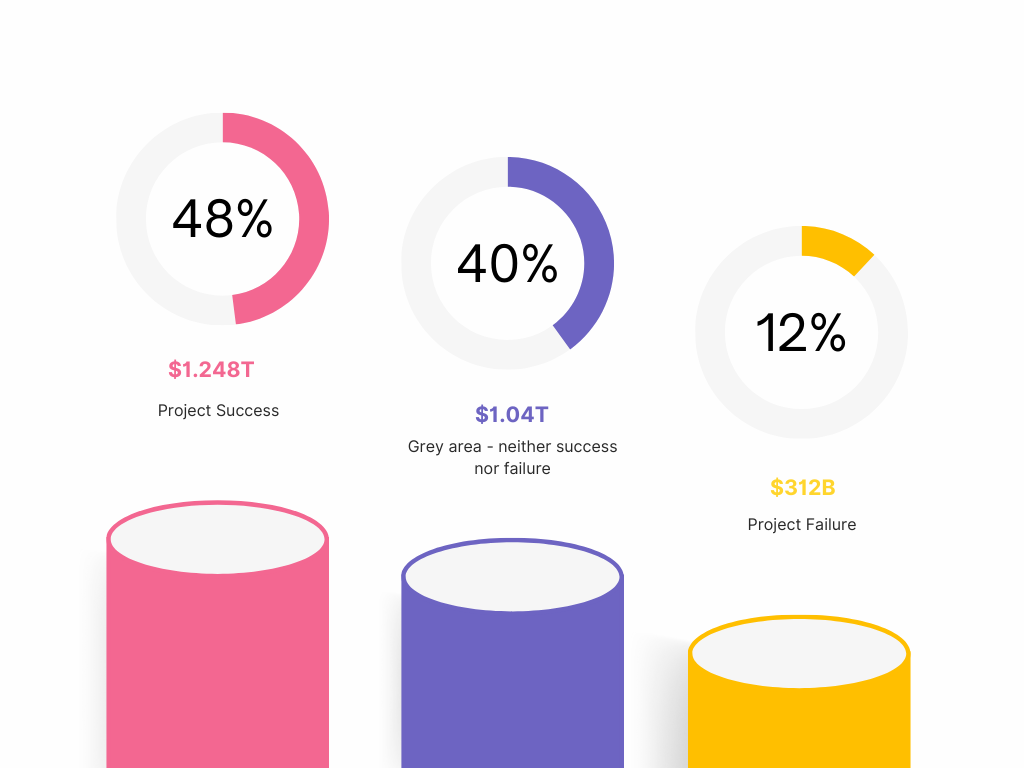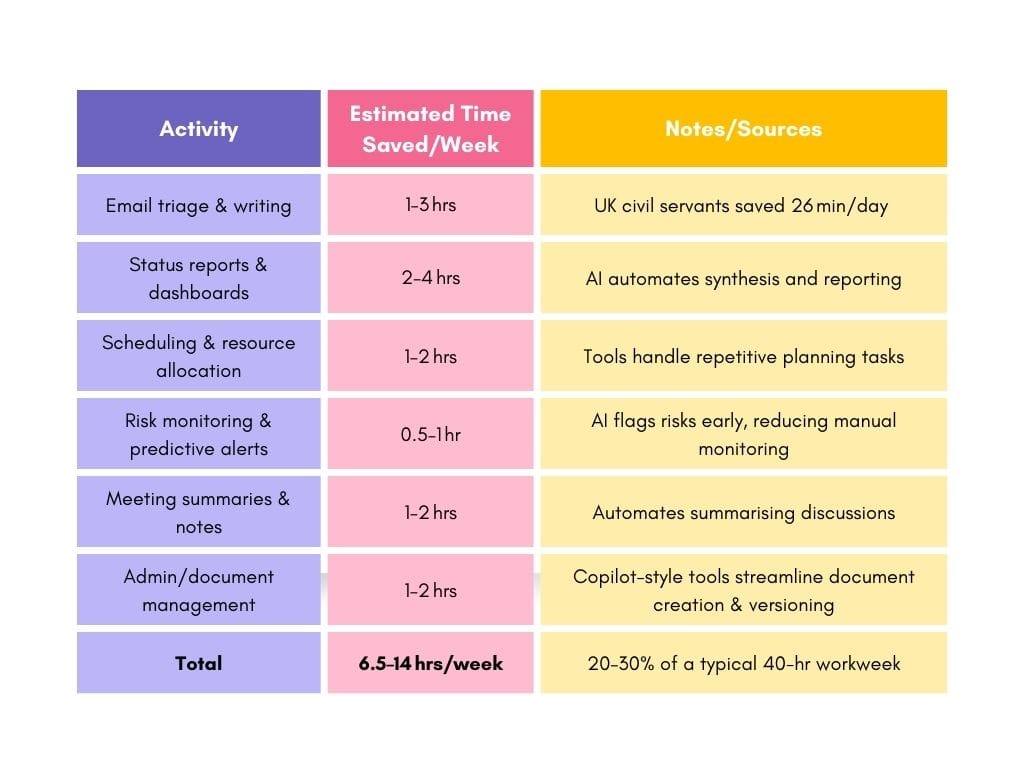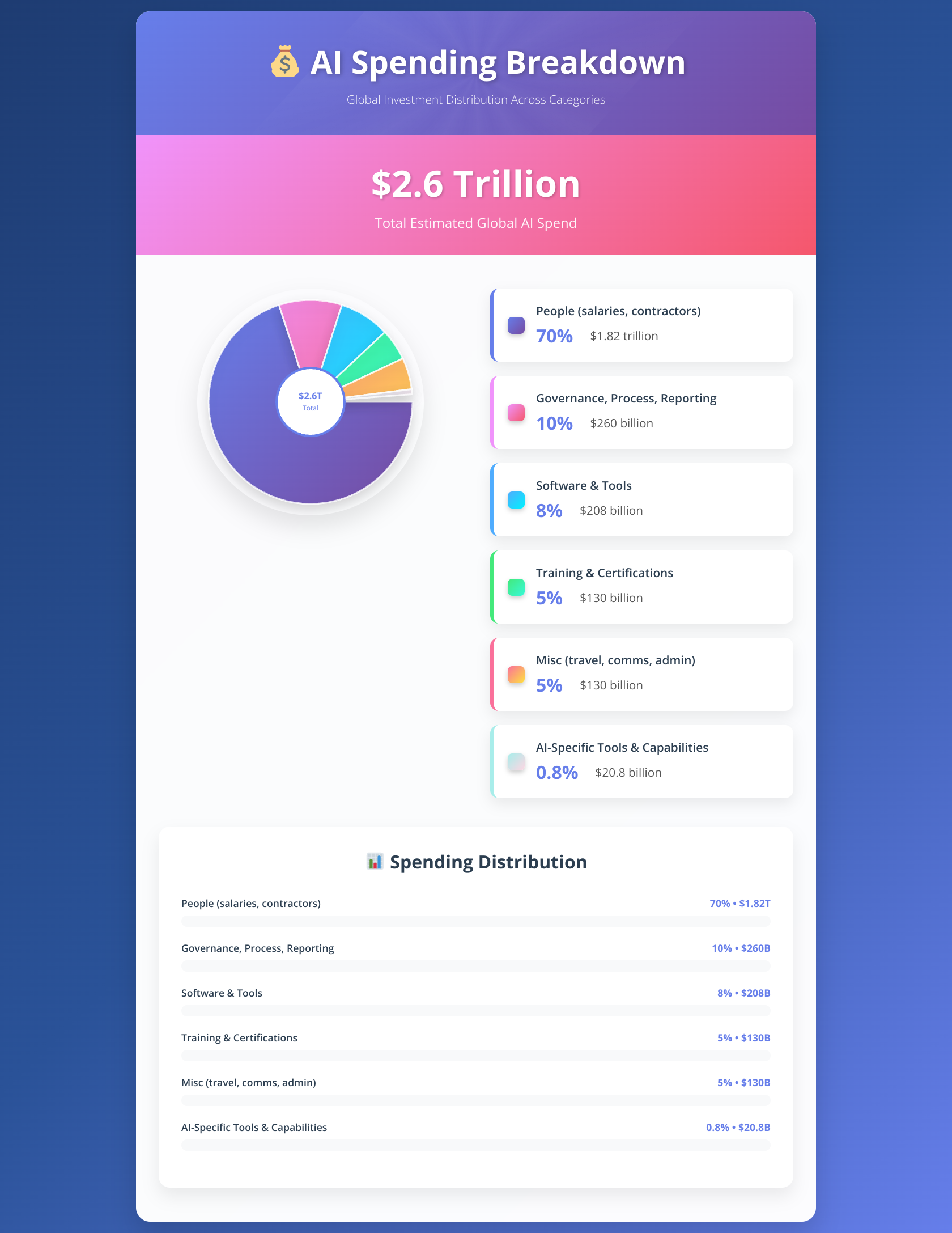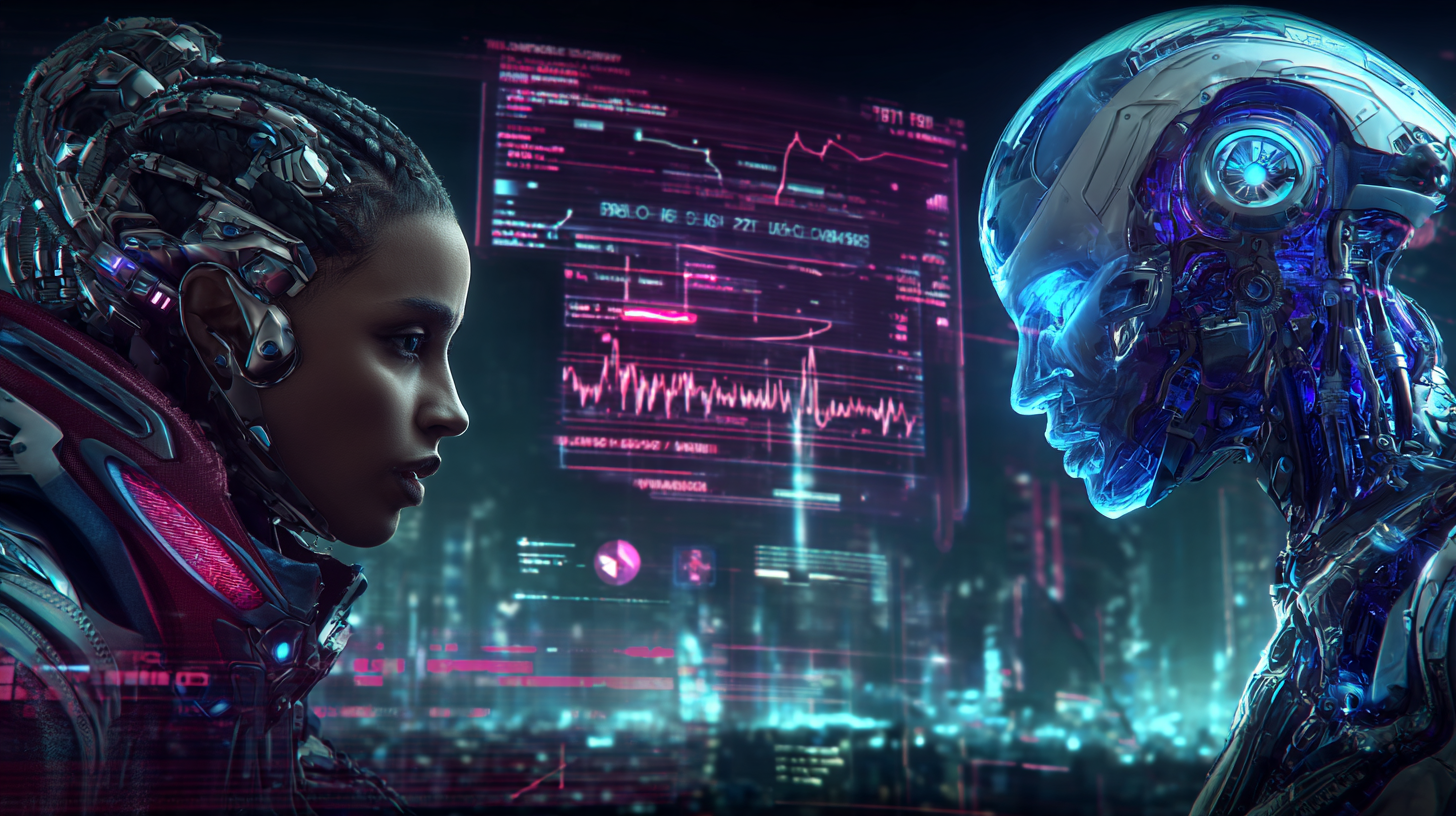Part 2 of the AI & Project Management Series
At a Glance
- Where AI is already being used
- Which industries are gaining and losing
- A timeline of adoption across sectors
- What remains safe - and why
The Shift Has Already Begun
In the first newsletter in the AI and PM series, we explored why businesses are embracing AI in project management and what that means for future Project Manager (PM) roles. The shift isn’t theoretical, it’s here. For example, AI has quietly taken root in daily workflows, automating tasks once considered only manageable by humans. What began as meeting notes and email summaries has evolved into a fundamental reimagining of project delivery.
Within this shift, we’re witnessing the biggest change in project management since the introduction of digital collaboration tools. The question isn’t whether AI will change the profession, but whether project managers will evolve with it.
A $2.6 Trillion Project Economy
Globally, projects account for an estimated $2.6T annually. About 10% of that ($260B) goes to project management functions.
Estimate based on 2023 World Bank global GDP figures and PMI/Wellington reports suggesting 8–10% of global economic activity is project-based, with 20–30% of that representing direct spend on project management functions.
Yet success rates remain low: PMI reports that only 48% of projects succeed, 40% fall into the “grey zone,” and 12% fail outright.

That equates to over $300 billion wasted each year. It goes without saying that this is massive waste.
The inefficiencies go beyond money. For example, they delay innovation, exhaust teams and place process burdens on project teams. But AI is reshaping this landscape, and early adopters are already reaping the rewards.
Interested in reading more data stories? Check out all our series at Monthly Stories.
Want to learn more about how AI will impact Project Managers? Check out our YouTube video below!
Where AI Is Already Delivering
While executives debate AI strategy, PMs are already using it. Tools like Microsoft Teams, Zoom, Fireflies, and Otter.ai handle transcription and summarization. Asana Intelligence and ClickUp Brain send contextual reminders and auto-generate updates. Notion AI and Wrike Intelligence compile reports across multiple data sources.
Microsoft Copilot manages documents and versions. Jira and Monday.com now predict risks before they become crises. These aren’t “future” features; they’re mainstream and transforming time allocation. Administrative drudgery is disappearing, freeing managers for strategy, leadership, and problem-solving.
And the pace can be dizzying: by the time an organization adopts one tool, three better ones may already exist.
Want to learn how to analyze data and build amazing data stories? Join Data Punk Media today!
What AI Can and Cannot Do
AI is excellent at the “what” and “when” of project management - what needs to be done, when, and potential bottlenecks. But the “why,” “how,” and “who” remain human territory.
Empathy, judgment, negotiation, and trust-building are still irreplaceable. AI may detect a project delay and suggest fixes, but it can’t sit with an angry client, read the room, and salvage the relationship. The best PMs of the future will orchestrate AI tools while applying wisdom, strategy, and emotional intelligence.

Winners and Losers by Industry
Not all industries and sectors will be impacted equally, some will be hit harder than others.
- Manufacturing, logistics, and administration: Routine-heavy industries are seeing the steepest automation. Predictive maintenance, scheduling, and quality control are now algorithm-driven.
- IT delivery: AI excels at software deployments, monitoring thousands of metrics and implementing fixes. Also, Generative AI is now creating code shifting development to validation and testing.
- Healthcare: On the flip side, PMs are more essential than ever, balancing regulatory complexity with patient outcomes.
- Creative industries: AI manages schedules and budgets, while humans focus on artistic and client-facing work.
- Infrastructure and climate projects: These massive, long-term efforts require systems thinking and stakeholder navigation beyond AI’s reach.
The pattern is clear: process-heavy roles are being automated; human-centered, high-stakes roles are rising in value.
Adoption Timeline
We believe that you can divide the adoption timeline into four distinct parts.
2023–2025
Several trends stand out in this part of the timeline:
- IT integrates AI into coding and ops.
- Finance applies AI to fraud detection and trading.
- Media and marketing deploy AI in content creation and personalization.
- Education experiments with adaptive learning.
This phase focuses on implementation of learning models, optimization, administrative automation (such as meeting notes), task updates, and reports.
PMI data shows a 15% productivity boost where AI is used.
2025–2028
AI shifts from task automation to real-time prioritization and resource allocation. Systems will generate contingency plans within minutes, complete with risks and impacts. Project managers evolve into decision partners with AI.
2028–2033
AI-assisted planning and semi-autonomous project delivery will emerge. Routine projects will run with minimal oversight, and PMs orchestrate strategy and complex initiatives.
Beyond 2033
Full automation arrives for repeatable projects (e.g., software updates, compliance). Human PMs focus on innovation and crisis management.
Join Data Punk Media today and explore the different data stories we publish.
The Numbers Behind the Change
AI saves PMs 6 to 14 hours per week, or up to 30% of their time. Here are some examples of common gains:

That’s 10 hours a week now free for higher-value work.
At scale, the impact is significant. With people accounting for 70% of project management’s $2.6T spend, even a 20% efficiency gain saves $364B annually. Some of this will reduce headcount, more will be reinvested in AI tools and higher-value roles.

The Paradox: Automation + Growing Demand
Despite automation, demand for Project Managers is growing. PMI estimates that by 2030, 25 million more PMs will be needed worldwide, especially in construction, healthcare, IT, and manufacturing.
The paradox: as AI eliminates drudgery, organizations can pursue more ambitious projects. Far from erasing the profession, AI is amplifying its importance.
Savings of $400–900B annually are projected. Companies will reinvest in AI infrastructure, strategic talent, and training. The result? PMs may manage more projects simultaneously, delivering greater impact.
Join the Data Punk community to learn how to build your own stories through data analyses!
The Human Side of the AI Transformation
The shift is deeply emotional.
- Fearful PMs worry algorithms will replace them.
- Complacent PMs assume their niche is immune - likely a mistake.
- Curious PMs are experimenting with tools, seeing AI as an amplifier, not a threat.
The winners are those who adapt their mindset: less “busy work = value,” more “judgment + relationships = value.”
Skills That Will Define the Future
The PM of the future won’t be the most technical, but the most adaptable. Key skills:
- Emotional intelligence for hybrid human/AI teams
- Strategic thinking to weigh AI-generated options
- Communication to explain machine insights to stakeholders
- Prompt engineering to frame problems effectively for AI
Most importantly, PMs must learn to treat AI as a collaborator and creative partner, not just an efficiency tool.

The Road Ahead
AI is no longer a distant horizon - it’s transforming project management today. Organizations that thrive will see AI as an amplifier of human capability, not a replacement.
For PMs, the mandate is clear: embrace continuous learning, experiment with tools, and sharpen uniquely human skills. AI will handle the repeatable; humans must own the strategic, complex, and deeply human elements.
The golden age of project management may be just beginning. Success will belong to those who understand that the future isn’t about competing with AI, it’s about learning to master it.
What's Next?
If AI is saving project managers 6-14 hours per week and reshaping a $2.6 trillion industry, what does your actual workday look like in the future?
In our next issue, we'll explore:
- How your Monday morning routine transforms when AI handles the admin
- Why the real bottleneck was never complexity - it was delay
- The four new roles every PM must master to stay indispensable
- Real examples of AI agents already making decisions for project teams
The daily rebuild isn't coming - it's here. The question is: will you design your new workflow, or will it be designed for you?


